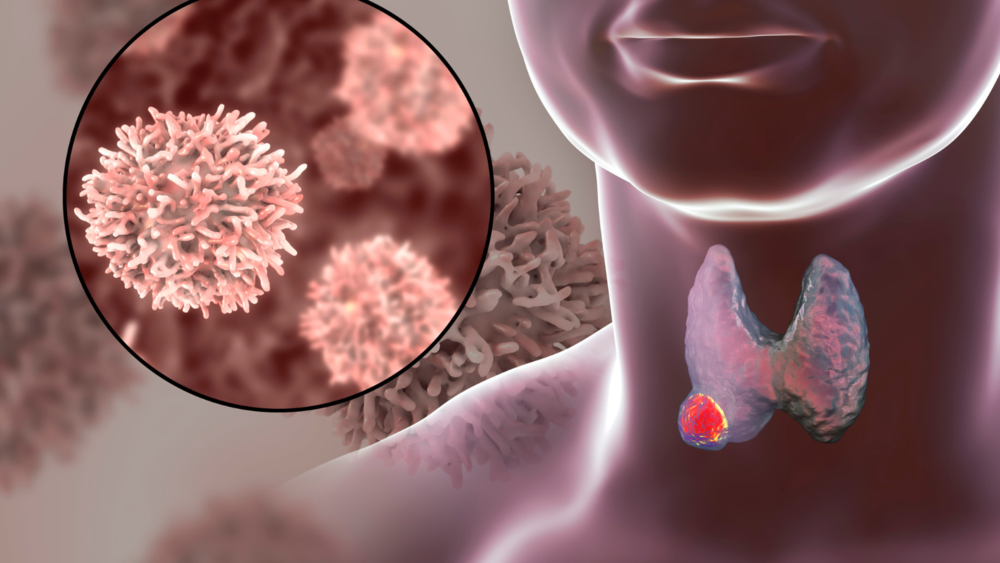Thyroid cancer metastasis sites: What you need to know

What is metastatic thyroid cancer?
Metastatic thyroid cancer occurs when thyroid cancer cells spread from the original tumor site in the thyroid gland to other parts of the body. Common thyroid cancer metastasis sites include the lungs, bones, and lymph nodes. Metastatic thyroid cancer can be more challenging to treat than localized thyroid cancer and often requires a combination of therapies.
Thyroid cancer metastasis sites: What you need to know

What are the symptoms of different thyroid cancer metastasis sites?
Thyroid cancer metastasis sites can present with a variety of symptoms depending on the location of the spread. If the cancer has spread to the lungs, patients may experience shortness of breath or a persistent cough. Metastasis to the bones can cause bone pain and fractures. Spread to the lymph nodes of the neck can present with a palpable or swollen lymph node. Regardless of the thyroid cancer metastasis sites involved, the most common presentation is asymptomatic and they are discovered on follow up surveillance imaging.

How do we diagnose spread in thyroid cancer metastasis sites?
All patients with thyroid cancer undergo surveillance follow up to detect thyroid cancer metastasis sites after surgery. This includes blood testing for Thyroid stimulating hormone (TSH) as well as measuring thyroglobulin levels. Elevated levels can indicate the recurrence of thyroid cancer in the surgical bed, missed cancer in the lymph nodes during the first operation, or spread of thyroid cancer into thyroid cancer metastasis sites. Radioactive iodine nuclear uptake scan is performed after surgery and can show thyroid cancer metastasis sites as commonly thyroid cancer lights up on these scans. A thyroid ultrasound is usually able to detect metastatic lymph nodes in the neck while cross-sectional imaging such as CT or MRI can show metastasis in the lungs, while bone scans can show thyroid cancer metastasis sites in bones. Lastly, PET scans, less commonly used in thyroid cancer but used frequently in other types of cancer, can show thyroid cancer metastasis sites anywhere in the body. Fine-needle aspiration biopsy can be used to examine suspicious lymph nodes or other tissues for the presence of malignant cells in thyroid cancer metastasis sites.

How do we treat spread in thyroid cancer metastasis sites?
The treatment of tumor deposits in thyroid cancer metastasis sites depends on the cancer type (papillary, follicular, medullary, or poorly differentiated/anaplastic), the location of disease, previous treatments, and the genetic profile of the tumor cells. For disease in the lymph nodes of the neck, surgical removal is the most effective therapy.
It is extremely important to have a high-volume thyroid surgeon with expertise in neck dissections to optimize outcomes. Radioactive iodine treatment is used to treat well-differentiated thyroid cancer metastasis sites. This includes papillary and follicular thyroid carcinomas. When there is disease spread to the bones, this can cause bone pain and fractures so surgical intervention by an experienced orthopedic surgeon is best. External beam radiation therapy can be used in rare situations including metastasis to the brain. Kinase Inhibitors are type of drug that blocks the action of enzymes known as kinases. Kinases are responsible for adding phosphate groups to proteins, which can activate or deactivate various cellular functions. By inhibiting these enzymes, kinase inhibitors can help to treat diseases such as cancer by preventing the uncontrolled growth of cells. Certain deposits in thyroid cancer metastasis sites may contain genetic mutations that could be targeted by such medications. A classic example is the use of vandetanib, a tyrosine kinase inhibitor targeting the RET gene to treat spread in thyroid cancer metastasis sites in patients with medullary thyroid carcinoma. Lastly, some deposits in thyroid cancer metastasis sites such as the lungs can be observed without any intervention especially if they are not growing on serial imaging.
Additional Resources
- Become our patient by filling out the form at this link.
- Learn more about The Clayman Thyroid Center here.
- Learn more about our sister surgeons at the Scarless Thyroid Surgery Center, Norman Parathyroid Center, and Carling Adrenal Center
- Learn more about the Hospital for Endocrine Surgery.